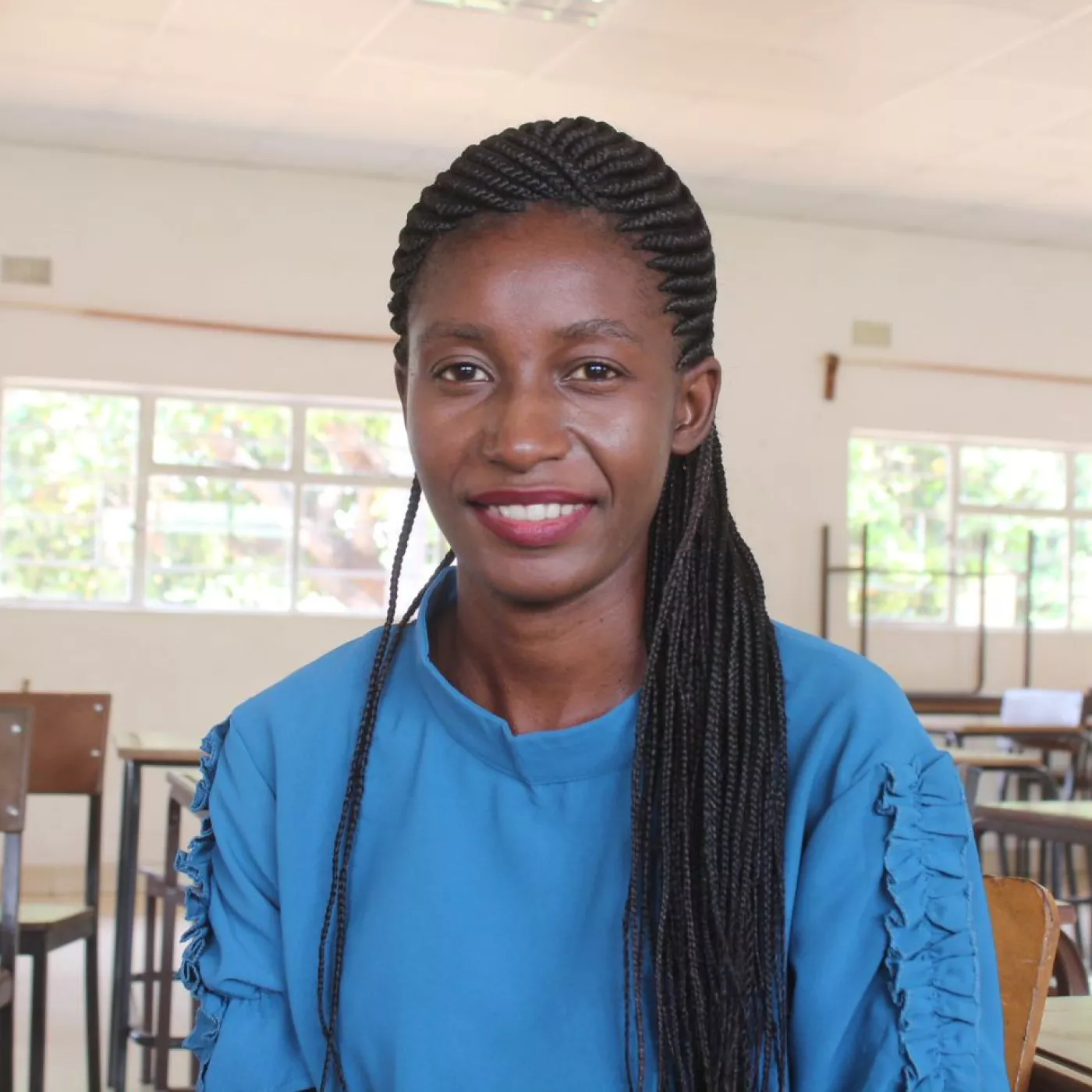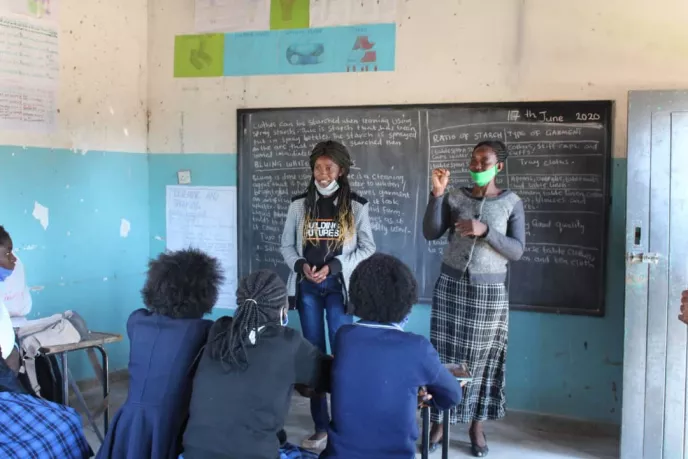‘Reach out collectively to give girls a better future’

Salomé Phiri won an Orange Knowledge Impact Award in 2020 for her contribution to preventing child marriages and adolescent pregnancies in rural Zambian communities. Salomé followed a training Media campaigning for social development at RNTC in the Netherlands with an Orange Knowledge scholarship, in February 2019. She makes a change to an issue that deserves our attention. Read more.
How big is this issue?
“Extremely big. Every year 12 million girls worldwide are married before the age of 18. That’s one in 5. Isolated and with limited freedom, married girls often feel disempowered. They are deprived of their fundamental rights to health, education and safety. It exposes girls to violence throughout their lives, traps them in a cycle of poverty. And, it also leads to adolescent pregnancies”, explains Salomé Phiri.
Complications in pregnancy and childbirth are the leading cause of death in girls aged 15-19 globally. When a mother is under 20, her child is 50 percent more likely to be stillborn or die within its first weeks of life than a baby born to an older mother. Child marriage and adolescent pregnancy does not only impact a girl and her child’s life, it has a huge impact on communities and nations: systems that undervalue the contribution and participation of girls and women limit their own possibilities for growth, stability and transformation. For example, a 2017 World Bank/ICRW study estimated that ending child marriage in Zambia could result in USD 68.2 million gains in productivity for the country.
Married girls are deprived of their fundamental rights to health, education and safety.
A collective effort
Salomé Phiri (26) works for the Ministry of Information and Broadcasting as a District Information Officer under the Zambia News and Information Services (ZANIS) in the Senanga district which is the Western Province of the country. She explains the situation in her country:
"In Zambia, 29 percent of the girls are married before their 18th birthday and 5 percent are married before the age of 15. In order to curb the vice, the government developed a national strategy to end child marriage and thus Senanga district was picked to pilot the Ending child marriage and teenage pregnancy campaign which runs from 2019 to 2021 with the aim of reducing the vice by 40 percent."
"Through the knowledge I gained on media campaigns for development and social change, I have utilised the information of the training in Senanga District. It helped me realise the importance of working in a team and not in isolation. So, in our action plan we focused on cooperation - to make it a collective issue to tackle. But first, how to reach the most affected, rural communities? Next to the national mass media campaigning on social media and television, we realised that most of these communities are deprived of internet. We had to get there and set up community sensitisations. With support from cooperating partners and government, we linked with traditional leaders, community workers, parents and school teachers to customise the implementation of the governmental campaign."
Traditions: abolish or amend?
When aiming at establishing change traditions can be standing in the way. Salomé: "When talking to traditional leaders we explain to them that it is not abolishment of traditions that we ask for. On the contrary, our country cherishes traditions! So, we seek room for finetuning our traditions to this day. For instance the girls initiation at 13 years old, when girls pass a period of 1 to 3 months in seclusion to be prepared for womanhood. Formally the message to these girls was: ‘you get married, you abandon school and get pregnant’. Some sex education was added in later years, but focused on that future perspective."
Interview continues below photo.

"We now stimulate to focus on finishing secondary education first, and explaining that girls need to mature first before getting married and pregnant. We stimulate to teach them more about personal and menstrual hygiene and Sexual Reproductive Health and Rights, explaining what the consequences for girls are of having sex. And, last but not least, we explain to them that girls can have a career, that there are many jobs women can do, and that they also can earn money and contribute to the community."
"For that you need education. These traditional leaders very often proved to be great ‘community champions’ as we call them, by being very successful in getting this perspective across, without tossing tradition overboard," says Salomé with pride.
She didn’t feel welcome
"One of the girls we retrieved from an early marriage lives in a small village called Sibukali. She’s was 15 when she was married to an older man. She dropped out of school and was totally deprived of any peer contact, feeling completely lost and blocked in maturing. After being approached by community workers, her parents and her teachers, she moved back in with her parents, and is now back to school."
"She did have a tough time at first, as she was ashamed and didn’t feel welcome, and she had missed several months of school. Teachers are trained to counsel and support these girls, and to encourage them to keep going. Today, she’s become a happier young girl looking forward to becoming a nurse. Something she never even imagined before."
After we reached out to a married 15 year old girl, she moved back in with her parents, and is now back to school.
"Where I grew up, in a small boarder town Chirundu, there weren’t many role models for me. I did however get the opportunity to continue school, thanks to my grandmother who sponsored my education. She worked as a trader at the market and insisted I finished secondary school. By then, I had a goal: I wanted to learn more. I obtained a government scholarship at age 17 to pursue a bachelor’s degree in Mass communication at the highest learning institution in the country, the University of Zambia."
"I was 24 when I received the scholarship of the Orange Knowledge Programme to come the Netherlands and learn more for reaching for my goal of getting and keeping more girls in school. I tell the girls I meet in these communities that the road is bumpy for girls, but it can be done: look at me! There are many ways a woman can have a career, to have a better future in which she earns money to support her family that way we can break the circle of poverty."
"I believe with dedication towards education and a bright future, there are many school sponsorship opportunities that government and other NGOs have put up to enable a girl child attain education," Salomé concludes.
"All we have to do is make this issue a very personal one - a collective one. We need to provide opportunities for these girls, and encourage them. Then it’s up to them to seize the moment!"